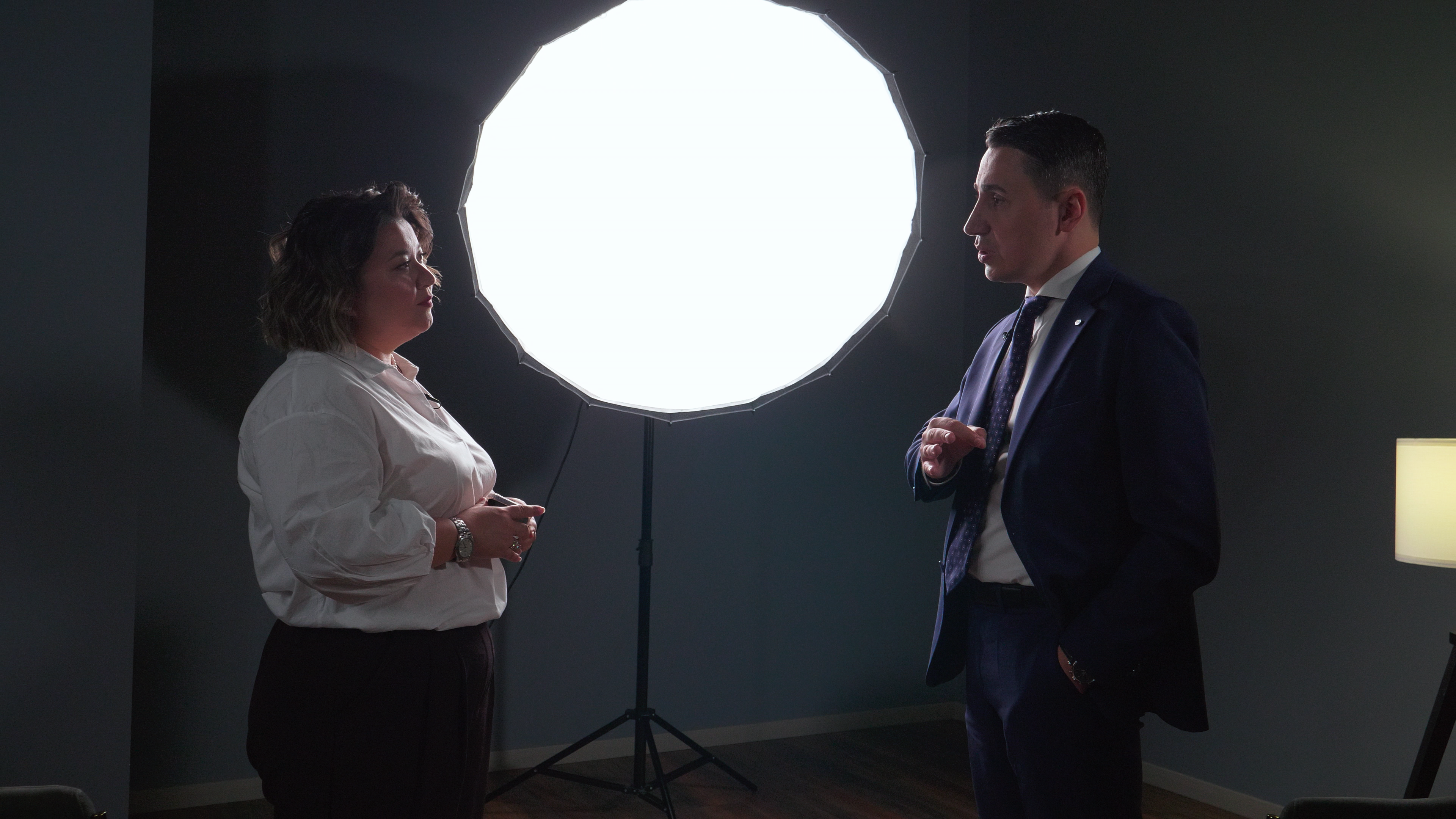ASTANA — Toylan Senel, the head of Roche in Central Asia, spoke about the company’s ambitious mission to maximize its influence, focusing on Roche’s commitment to providing the most significant impact in Kazakhstan’s pharmaceutical industry in an interview with The Astana Times. Notably, in October of last year, Roche and Kazakhstan forged a groundbreaking agreement to localize the production of three highly effective biotechnological drugs targeting breast cancer in the country.

For the complete conversation, stay tuned for the release of the full video interview on The Astana Times’ YouTube channel. Photo credit: The Astana Times
According to Senel, 5,000 women in Kazakhstan are diagnosed with breast cancer annually. The production localization of three highly effective biotechnological drugs by Roche is expected to impact treating this disease tremendously.
“When His Excellency President Tokayev explained his vision to have a strong biotechnical and pharmaceuticals industry in Kazakhstan and to have 50% of the medicines produced locally, we said, ‘let’s start with that,’’’ Senel said.
Senel underlined that when discussing patients, it is imperative to remember they are not just statistics; they are mothers, wives, sisters, and daughters – more than mere numbers. The company’s commitment remains steadfast: to treat each woman with the care and respect they deserve.
Advancing localization efforts
While providing updates on the localization’s current status, Senel emphasized that the project’s success relies on the company’s and government agencies’ collaborative efforts.

In October of last year, at Kazakhstan Global Investment Roundtable in Astana, Roche and Kazakhstan forged an agreement to localize the production of three highly effective biotechnological drugs targeting breast cancer. Photo credit: Kazakh Invest national company.
“A project is never successful by the effort of one single entity. It has been a huge collaboration among the President himself, the Ministry of Healthcare, the single distributor of medicines, and the Kazakh Invest. Everybody has played their little part,” Senel said.
He explained that a framework agreement has been established outlining the step-by-step process for implementing the project. Additionally, he clarified that a local partner has been chosen, and this partner has extensively upgraded the facilities to align with the company’s standards in Switzerland.
“For us, it is absolutely clear that the medicines we produce in Switzerland and Kazakhstan have to be of the same quality. We are very confident that the first medicine produced in Kazakhstan will be delivered to patients in 2024,” Senel said.
Elaborating on whether the company encountered any logistical or regulatory hurdles, Senel emphasized that the cooperative spirit of the partnership facilitated swift adaptation to Kazakh regulations. This demonstrates Kazakhstan’s recognition of the importance of substantial investments in the country’s pharmaceutical sector. Senel also highlighted that the company is at the forefront of this endeavor.
“We are the first runner in this regard. No multinational has ventured into this territory before us. It shows the willingness and the positive investment climate in Kazakhstan. The government is opening doors, listening, and aligning local legislation with global trends. As a foreign investor and partner, I am happy to collaborate with a government with such willingness and mindset,” he highlighted.
Propelling digitalization in healthcare
The interview also focused on digitalization. Senel emphasized Kazakhstan’s progress in digitizing fintech, highlighting the country’s potential for extending digitalization to the healthcare industry as well.
“In healthcare, it is imperative to have very accurate data. Because there is no single group of patients. Every patient is different,” he said.
According to him, the better the country understands diseases, the more effectively it can register patients and track treatment flow. This understanding can influence government responses and multinational organizations like Roche. Senel also proposed a revolutionary idea: if such an approach is successfully implemented, multinational companies could one day be compensated based on the effectiveness of treatments.
“If a treatment proves successful and delivers benefit to patients, then, of course, the government should pay. But, if treatment fails, then I don’t see any reason for the Kazakh taxpayer to foot the bill for ineffective drugs produced by either the multinational company or local producer. For that, we need to have a precise digital system to accurately measure health statuses. With such a system in place, we can use our limited budget more efficiently to provide optimal treatment to patients,” he said.
Senel shared that such an approach is already being implemented in many European countries and Belarus, Kazakhstan’s partner in the Eurasian Economic Union.
“In Belarus, we look at the patient data, the treatment success, the clinical benefits, and based on that, we have a reimbursement. If that is not given, then it is a risk. But this way the taxpayer knows exactly where the money is going. This is something very fundamental,” Senel explained.
He added that trust among the industry, government, and patients is essential because when all three parties have confidence in the system, they can all benefit.
Looking ahead, Senel shared the company’s vision for Kazakhstan. He emphasized that it pertains to the company’s approach and his personal one.
“I think it is paramount that multinational investors also take responsibility for the nation in which they operate. We cannot demand everything from the government, especially when it comes to spending. We have to ensure that we generate value for the population and that we treat more patients better at lower costs,” he concluded.
The video interview will be released on the YouTube channel of The Astana Times in early June.
